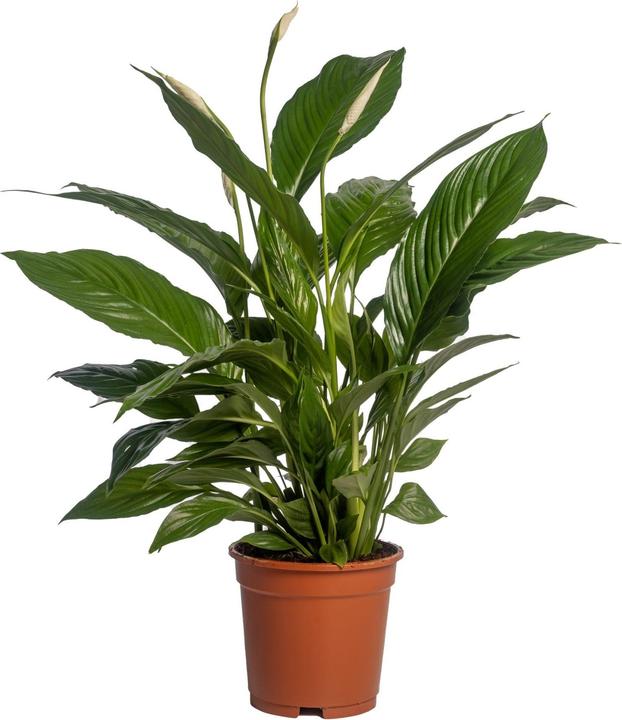

Do your plants like metal?
Fact or fiction? We sometimes hear that music helps plants to flourish. Is there any truth in this? In the "Fact or fiction" series, I look at such claims.
Imagine yourself headbanging with your orchid while listening to Iron Maiden together. Or even rocking your yucca to the sound of Vivaldi's Four Seasons. All, of course, with a view to making them grow faster.
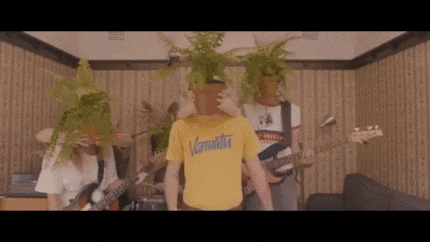
What a beautiful image. And not so far from reality.
Plants aren't deaf
Even though plants don't have ears, they hear. Their cells contain membranes that react to noise. On contact with certain sound waves, their pores open and their metabolism is stimulated.
This awareness is relatively recent. Scientists have long wanted to unravel the mystery linking plants and sound.
Darwin fails with a bang
Charles Darwin is said to have once played fanfare music to his garden plants. He wanted to know if this had any influence on plant growth. But the naturalist's leafy offspring were not impressed by his musical efforts. They grew neither faster nor better.
Cress and chewing
An experiment conducted at the University of Missouri in 2013 was more successful. A particular watercress reacted to the chewing sounds of a caterpillar.
The plant secreted chemical toxins to protect itself from being bitten by its predator.
The team therefore concluded that sound waves are sources of information for plants.
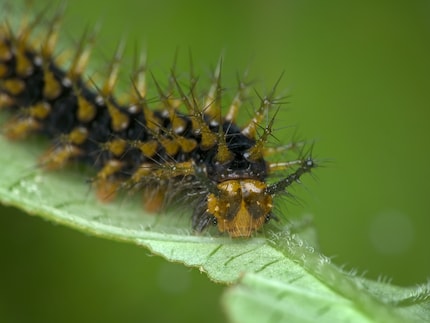
Source: Shutterstock
Peas and lapping
In 2019, a study from the University of Western Australia came to a similar result. The object of study was the reaction of pea sprouts to the sound of running water, without direct contact with the water, despite being planted in moist soil. The result was surprising:
The roots of the pea seedlings grew in the direction of the lapping water.
What about the music, then? Were plants turning a deaf ear to Darwin's trumpet?
Long-term study shows correlation
The first scientifically founded answer was provided by biologist Stefano Mancuso from the University of Florence. He made one part of his vines in the Tuscan vineyard listen to classical music and the other part not, and did so for ten years, day and night.
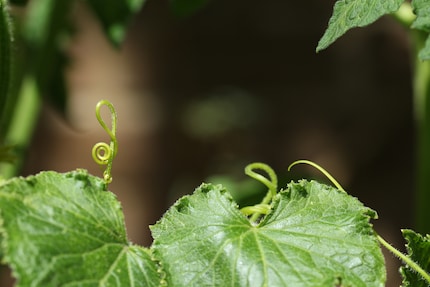
Source: Shutterstock
Mr Mancuso's incredible observations answer a big yes to this urban legend.
The vines that listened to Mozart bore larger leaves. The aroma of their grapes was richer and, later, so was their wine.
However, not all types of music have the same effect. Rock music and heavy metal would not have a positive influence on growth. It would even cause plants to die, according to one of the sources of my research. However, biologist Julia Kehr puts this claim into perspective with German radio station Südwestrundfunk (SWR): "It doesn't matter whether it's Mozart or hard rock. The music simply can't be too loud, because then the membranes would be damaged."
It doesn't matter, then, if you're playing Mötley Crüe or Beethoven. Your plants have sensitive ears... er, membranes. Drink in moderation. We'd need another long-term study to see whether melodies derived from metal help vines to flower.
Bad news for ornamental plants
Want to get started right away and grow your orchid and yucca to music? Sorry to have to disappoint. If there's one thing that's been proven so far, it's this:
Music has an influence on wild plants like vines or tomatoes. But not on ornamental plants.
But don't be discouraged: even if there's no proof yet, there's no harm in playing music for your plants from time to time or reassuring them yourself. It has been proven that plants like the sound of your voice. As well as sound waves, you emit carbon dioxide when you speak. This stimulates photosynthesis.
Plant reading lists
If you're not sure which music to choose, there are songs composed by plants themselves. Hamburg artist Sven Meyer, aka KYMAT, sticks electrodes to his plants and uses the transmitted pulses to generate pieces of music. KYMAT even does concerts with them. It sounds something like this:
If you prefer something less experimental, you'll find the popular playlists Music for Plants or Mother Earth's Plantasia on audio streaming services. You can also give your green thumb a helping hand with Greenday or AI Green.
What's the next guess I need to check? Share your thoughts in the comments!
Headline photo: Darina Schweizer
I love anything with four legs or roots - especially my shelter cats Jasper and Joy and my collection of succulents. My favourite things to do are stalking around with police dogs and cat coiffeurs on reportages or letting sensitive stories flourish in garden brockis and Japanese gardens.
Interesting facts about products, behind-the-scenes looks at manufacturers and deep-dives on interesting people.
Show allThese articles might also interest you

Background information
Please don’t feed carnivorous plants!
by Darina Schweizer
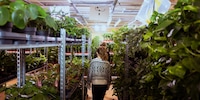
Background information
Plant passion instead of DIY store frustration: what’s different about Feey
by Darina Schweizer

Background information
Visit to the largest Japanese garden in Europe: Sabine Rusch reveals the secret of garden art
by Darina Schweizer
